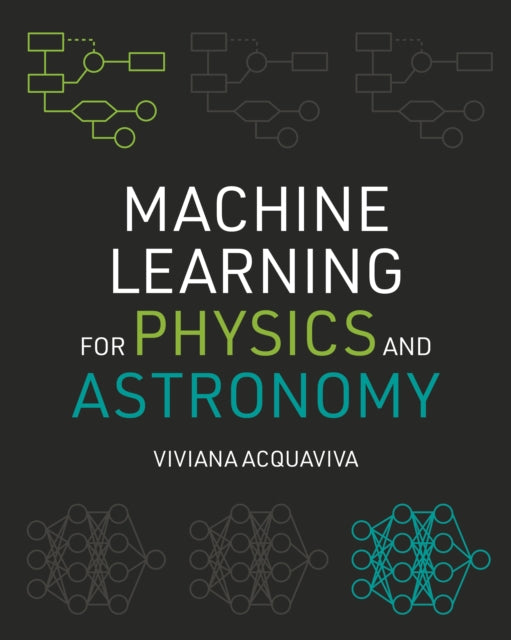Viviana Acquaviva
Machine Learning for Physics and Astronomy
Machine Learning for Physics and Astronomy
YOU SAVE £7.25
- Condition: Brand new
- UK Delivery times: Usually arrives within 2 - 3 working days
- UK Shipping: Fee starts at £2.39. Subject to product weight & dimension
Bulk ordering. Want 15 or more copies? Get a personalised quote and bigger discounts. Learn more about bulk orders.
Couldn't load pickup availability
- More about Machine Learning for Physics and Astronomy
Machine learning is being used in the physical sciences to analyze data and make advances in quantum physics, astronomy, cosmology, and other fields. This textbook covers the basics of building, diagnosing, optimizing, and deploying machine learning methods to solve research problems, with an emphasis on critical thinking and the scientific method. It uses real-world data and examples from the frontiers of research and includes Jupyter Notebook worksheets and review questions.
Format: Paperback / softback
Length: 280 pages
Publication date: 15 August 2023
Publisher: Princeton University Press
As the volume and intricacy of data in the physical sciences continue to surge at an exponential rate, machine learning emerges as a powerful tool for scientists to navigate and analyze this vast trove of information, propelling groundbreaking advancements in fields such as quantum physics, astronomy, cosmology, and beyond. This comprehensive textbook delves into the fundamentals of constructing, diagnosing, optimizing, and deploying machine learning techniques to address research challenges in physics and astronomy, with a strong emphasis on critical thinking and the scientific method. Through a hands-on learning approach, Machine Learning for Physics and Astronomy employs real-world, publicly accessible data and examples drawn directly from the cutting edge of research, encompassing tasks such as identifying galaxy morphology from images and detecting the signature of standard model particles in simulations at the Large Hadron Collider.
Furthermore, the book introduces readers to best practices in data-driven problem-solving, encompassing tasks such as preliminary data exploration and cleaning, as well as selecting the most suitable method for a particular task. Each chapter is accompanied by Jupyter Notebook worksheets in Python, enabling students to delve deeper into key concepts and apply them in practical scenarios. Additionally, the book includes a wealth of review questions and quizzes to reinforce learning and assess comprehension.
Ideal for advanced undergraduate and early graduate students in STEM disciplines such as physics, computer science, engineering, and applied mathematics, Machine Learning for Physics and Astronomy is also accessible to self-learners with a foundational understanding of linear algebra and calculus. Furthermore, instructors have access to slides and assessment questions (available exclusively to them) to enhance the teaching and learning experience.
Weight: 674g
Dimension: 203 x 254 x 18 (mm)
ISBN-13: 9780691206417
This item can be found in:
UK and International shipping information
UK and International shipping information
UK Delivery and returns information:
- Delivery within 2 - 3 days when ordering in the UK.
- Shipping fee for UK customers from £2.39. Fully tracked shipping service available.
- Returns policy: Return within 30 days of receipt for full refund.
International deliveries:
Shulph Ink now ships to Australia, Belgium, Canada, France, Germany, Ireland, Italy, India, Luxembourg Saudi Arabia, Singapore, Spain, Netherlands, New Zealand, United Arab Emirates, United States of America.
- Delivery times: within 5 - 10 days for international orders.
- Shipping fee: charges vary for overseas orders. Only tracked services are available for most international orders. Some countries have untracked shipping options.
- Customs charges: If ordering to addresses outside the United Kingdom, you may or may not incur additional customs and duties fees during local delivery.


